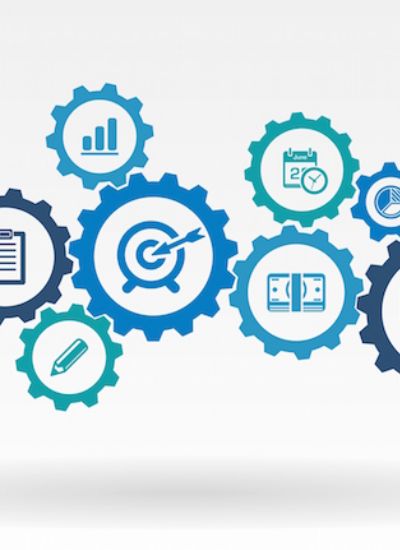5 Quick Steps To Speed Up Your Computer
There are plenty of useful tips and ways to help you speed up your computer.
You can use the following 5 quick steps to easily have a high performing machine without having to shell out a fortune.
Many people experience the problem of their computer slowing down intermittently and find that they are faced with the possibility of having to spend money on new hardware or calling up technicians who are trained to help speed up your computer.
However, if you are in the middle of a critical task and require your system to go faster this approach can be really inconvenient or even worse, very expensive.
Here are 5 really quick and easy steps that you can use to increase the speed of your computer on your own, and these should help you to avoid costly help desk calls.
So what are the main reasons for your computer slowing down? Firstly, your machine may slow down if your system gets cluttered with unnecessary data.
It is very easy for temporary files or registry files to be left behind after installation of new programs.
Secondly, when most people enable the various procedure services, settings etc of their computer system they check the box to optimize their performance, which is not always necessary and can cause the computer to slow down, especially at start up.
The third main reason for your computer slowing down tends to be viruses, malware or spyware that have found their way onto your system and need removed.
There are five quick steps you can take to speed up your computer.
1.
You should do a thorough review of the files and documents that are on your system to clear out all the unnecessary files and data.
To do this, go to your system control panel and click on the remove programs button.
If you are confident about what you are doing, you can also install registry cleaner software or any disk cleanup software that can do the job for you.
2.
You should delete all cookies and temporary files from your Internet browser as well.
To do this, find the tools option in the browser, click on the Internet selections, then the general menu and select the delete all cookies and delete all temporary files buttons.
3.
You should review the files that are launching when you start up your computer by checking the start up file.
To do this, open the Start menu and click on run.
Type msconfig (which is the Windows configuration program) into the box and confirm by pressing Enter.
In the window that opens, go to the Startup tab and you will find the list of programs that are launched when you start up your computer.
You may need to work out what some of these are and you can then uncheck any boxes that you don't want to launch at start up (always leave anti-virus and firewall programs as active).
4.
You should use some type of anti-spyware and anti-virus programs to make sure that your personal information is safe and also to remove any viruses, spyware or malware that may have managed to get on to your system.
5.
Another quick way to speed up your computer is to do a total system defragmentation.
For this, you just need to click on the My Computer option and find the tools button to follow the guide for defragmentation.
This will help to make it quicker and easier for your system to find and access files on your hard drive.
You can use the following 5 quick steps to easily have a high performing machine without having to shell out a fortune.
Many people experience the problem of their computer slowing down intermittently and find that they are faced with the possibility of having to spend money on new hardware or calling up technicians who are trained to help speed up your computer.
However, if you are in the middle of a critical task and require your system to go faster this approach can be really inconvenient or even worse, very expensive.
Here are 5 really quick and easy steps that you can use to increase the speed of your computer on your own, and these should help you to avoid costly help desk calls.
So what are the main reasons for your computer slowing down? Firstly, your machine may slow down if your system gets cluttered with unnecessary data.
It is very easy for temporary files or registry files to be left behind after installation of new programs.
Secondly, when most people enable the various procedure services, settings etc of their computer system they check the box to optimize their performance, which is not always necessary and can cause the computer to slow down, especially at start up.
The third main reason for your computer slowing down tends to be viruses, malware or spyware that have found their way onto your system and need removed.
There are five quick steps you can take to speed up your computer.
1.
You should do a thorough review of the files and documents that are on your system to clear out all the unnecessary files and data.
To do this, go to your system control panel and click on the remove programs button.
If you are confident about what you are doing, you can also install registry cleaner software or any disk cleanup software that can do the job for you.
2.
You should delete all cookies and temporary files from your Internet browser as well.
To do this, find the tools option in the browser, click on the Internet selections, then the general menu and select the delete all cookies and delete all temporary files buttons.
3.
You should review the files that are launching when you start up your computer by checking the start up file.
To do this, open the Start menu and click on run.
Type msconfig (which is the Windows configuration program) into the box and confirm by pressing Enter.
In the window that opens, go to the Startup tab and you will find the list of programs that are launched when you start up your computer.
You may need to work out what some of these are and you can then uncheck any boxes that you don't want to launch at start up (always leave anti-virus and firewall programs as active).
4.
You should use some type of anti-spyware and anti-virus programs to make sure that your personal information is safe and also to remove any viruses, spyware or malware that may have managed to get on to your system.
5.
Another quick way to speed up your computer is to do a total system defragmentation.
For this, you just need to click on the My Computer option and find the tools button to follow the guide for defragmentation.
This will help to make it quicker and easier for your system to find and access files on your hard drive.




















